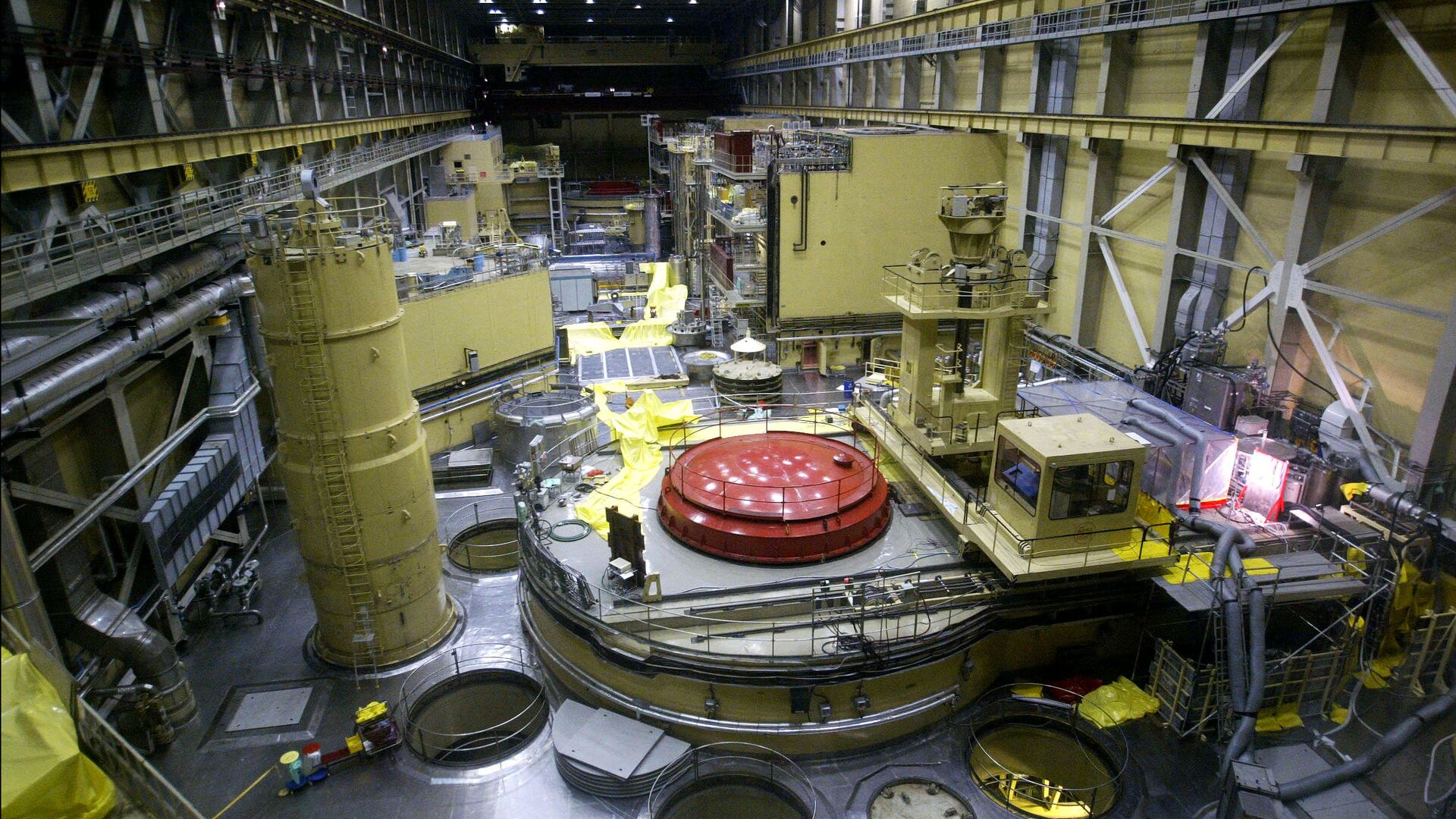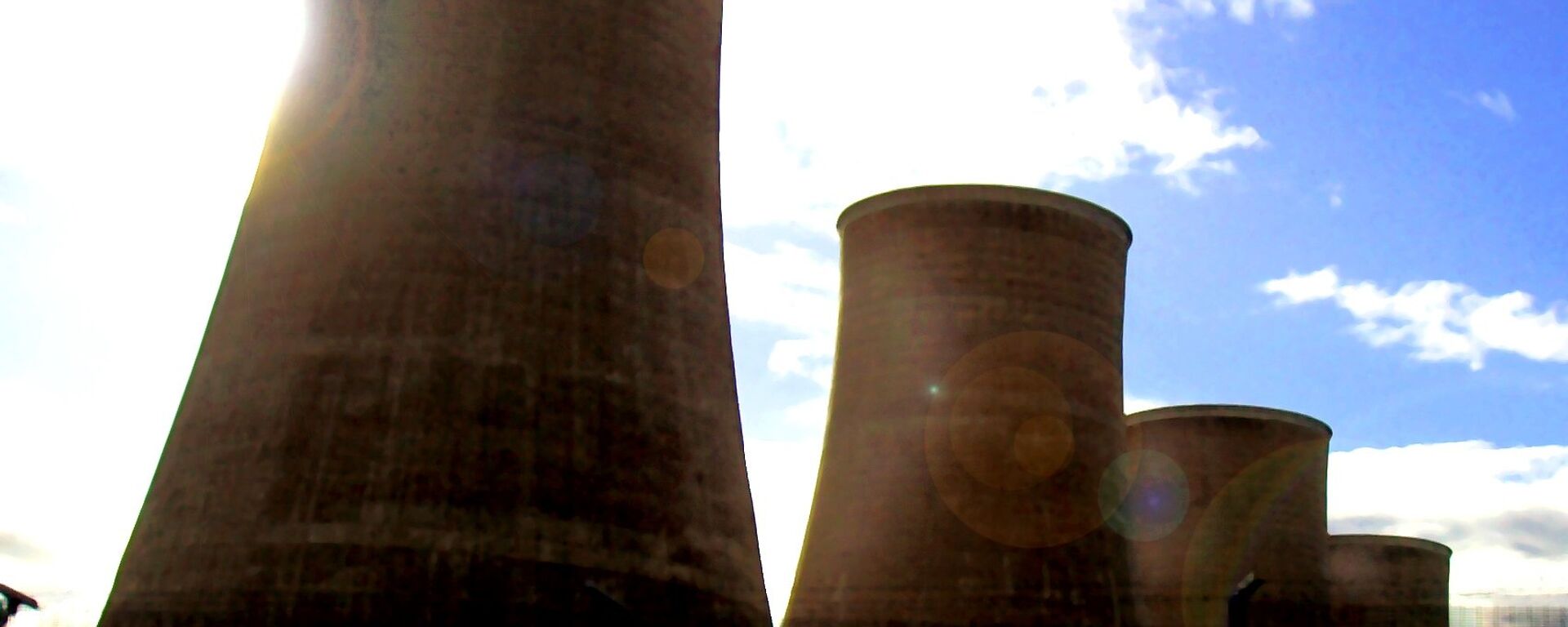https://sputnikglobe.com/20240606/hungary-stands-firm-on-russian-nuclear-energy-cooperation-amid-sanctions-pressure-fm-tells-sputnik-1118808118.html
Hungary Stands Firm on Russian Nuclear Energy Cooperation Amid Sanctions Pressure, FM Tells Sputnik
Hungary Stands Firm on Russian Nuclear Energy Cooperation Amid Sanctions Pressure, FM Tells Sputnik
Sputnik International
The Paks Nuclear Power Plant is key to Hungary's energy sector, providing around half of the country's population with clean electricity.
2024-06-06T11:00+0000
2024-06-06T11:00+0000
2024-06-06T11:07+0000
russia
peter szijjarto
hungary
european union (eu)
rosatom
nuclear energy
world
https://cdn1.img.sputnikglobe.com/img/104588/62/1045886218_0:132:2464:1518_1920x0_80_0_0_19c8b81a912394f6a27b0007d9c6d35b.jpg
Hungarian Foreign Minister Peter Szijjarto has highlighted Hungary's long-standing collaboration with Russia in nuclear energy, expressing satisfaction with this partnership.He underscored the vital role of nuclear power in Hungary's energy security, with half of the country's electricity production derived from nuclear sources. "Without nuclear power, we would not be able to supply our country safely with electricity. Half of our electricity production comes from nuclear. And our nuclear power plant is being fueled by Russian nuclear fuel," he said.He emphasized the importance of further enhancing nuclear cooperation with Russia, citing it as a national interest. "It is not only that we do not support sanctions on nuclear, but we are interested in further improving our nuclear cooperation with Russia simply because it is our national interest. So we are now in a construction phase regarding our new nuclear power station, where the main contractor is [Russian state nuclear corporation] Rosatom," the minister highlighted.Szijjarto described the new plant as crucial "life insurance" for Hungary's future energy needs and its readiness for the evolving demands of the modern economy.Russia and Hungary have long been cooperating in the nuclear energy sector. Hungary's only nuclear power plant, the four-reactor Paks NPP, was built on a Soviet design and uses Russian-made reactors, with Russia supplying nuclear fuel for the plant. Budapest plans to expand the plant by adding two more reactors with Rosatom's help under a project titled "Paks-2."Western countries stepped up sanctions pressure on Moscow after the start of Russia's special military operation in Ukraine in February 2022. The European Union, in particular, has since imposed 13 packages of sanctions against Russia. None of them, however, included sanctions against Rosatom.
https://sputnikglobe.com/20240325/hungary-interested-in-continuing-nuclear-energy-cooperation-with-russia-1117540103.html
russia
hungary
Sputnik International
feedback@sputniknews.com
+74956456601
MIA „Rossiya Segodnya“
2024
Sputnik International
feedback@sputniknews.com
+74956456601
MIA „Rossiya Segodnya“
News
en_EN
Sputnik International
feedback@sputniknews.com
+74956456601
MIA „Rossiya Segodnya“
Sputnik International
feedback@sputniknews.com
+74956456601
MIA „Rossiya Segodnya“
hungary-russia nuclear cooperation, peter szijjarto, spief 2024, st.petersburg international economic forum, russia, russian nuclear energy, russian nuclear fuel, paks npp
hungary-russia nuclear cooperation, peter szijjarto, spief 2024, st.petersburg international economic forum, russia, russian nuclear energy, russian nuclear fuel, paks npp
Hungary Stands Firm on Russian Nuclear Energy Cooperation Amid Sanctions Pressure, FM Tells Sputnik
11:00 GMT 06.06.2024 (Updated: 11:07 GMT 06.06.2024) The Paks Nuclear Power Plant is key to Hungary's energy sector, providing around half of the country's population with clean electricity.
Hungarian Foreign Minister Peter Szijjarto has highlighted Hungary's long-standing collaboration with Russia in nuclear energy, expressing satisfaction with this partnership.
"Nuclear energy has not been under sanctions. And we will never agree with any sanction measures to be applied against nuclear. Hungary has been working together with the Russian Federation on nuclear for decades," Szijjarto told Sputnik on the sidelines of the 27th St. Petersburg International Economic Forum (SPIEF).
He underscored the vital role of nuclear power in Hungary's energy security, with half of the country's electricity production derived from nuclear sources.
"Without nuclear power, we would not be able to supply our country safely with electricity. Half of our electricity production comes from nuclear. And our nuclear power plant is being fueled by Russian nuclear fuel," he said.
He emphasized the importance of further enhancing nuclear cooperation with Russia, citing it as a national interest.
"It is not only that we do not support sanctions on nuclear, but we are interested in further improving our nuclear cooperation with Russia simply because it is our national interest. So we are now in a construction phase regarding our new nuclear power station, where the main contractor is [Russian state nuclear corporation]
Rosatom," the minister highlighted.
In late 2014, Russia and Hungary signed an agreement on the construction of two additional advanced reactors at the Paks Nuclear Power Plant (NPP). Rosatom said that construction was set to begin from late 2024 to early 2025.
Szijjarto described the new plant as crucial "life insurance" for Hungary's future energy needs and its readiness for the evolving demands of the modern economy.
Russia and Hungary have long been cooperating in the nuclear energy sector. Hungary's only nuclear power plant, the four-reactor Paks NPP, was built on a Soviet design and uses Russian-made reactors, with Russia supplying nuclear fuel for the plant. Budapest plans to expand the plant by adding two more reactors with Rosatom's help under a project titled "Paks-2."
Western countries stepped up sanctions pressure on Moscow after the start of Russia's special military operation in Ukraine in February 2022. The European Union, in particular, has since imposed 13 packages of sanctions against Russia. None of them, however, included sanctions against Rosatom.



